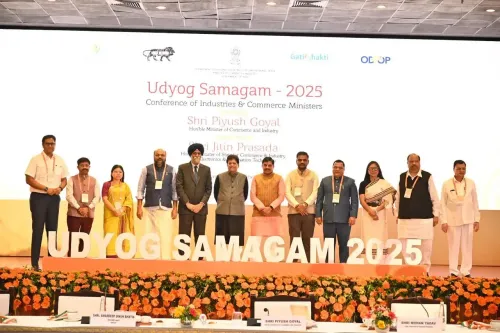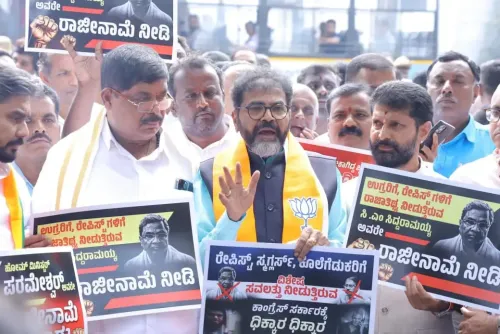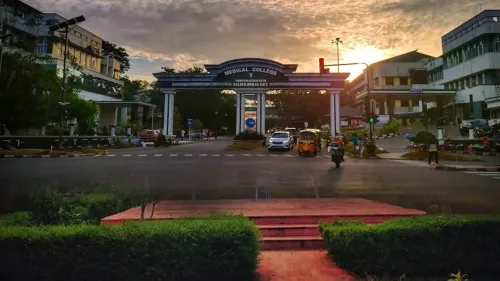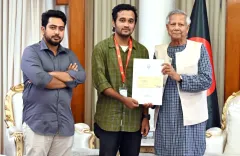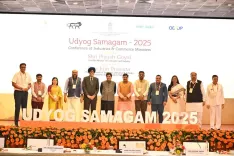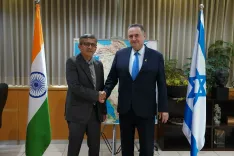India's Medical Innovation Revolution: AI and Genomics in Unani Medicine
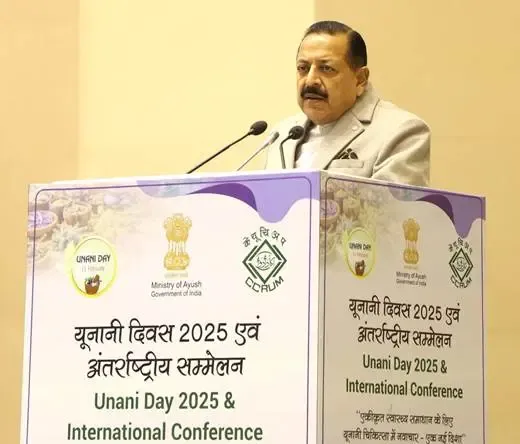
Synopsis
Key Takeaways
- AI and genomics are being integrated into Unani medicine.
- India's traditional medical knowledge is gaining global recognition.
- The Ayush sector has seen an eightfold increase in value.
- Postgraduate Unani courses are making India an academic hub.
- Future healthcare is focused on integrated treatment approaches.
New Delhi, Feb 12 (NationPress) India is making significant strides in medical innovation by leveraging artificial intelligence and genomics within Unani medicine, according to Jitendra Singh, the Union Minister of State (Independent Charge) for Science and Technology.
During the celebration of Unani Day 2025 and the International Conference on “Innovations in Unani Medicine” on Tuesday, Singh emphasized that the Indian systems of medicine have gained global recognition over the past decade.
“India is rich in traditional medical wisdom, which represents our heritage and strength. We are committed to preserving this invaluable legacy, while also modernizing it and ensuring its global recognition through technology-driven innovations,” Singh stated.
He pointed out that the future of healthcare in India lies in merging traditional knowledge with contemporary scientific advancements. Singh mentioned that Unani and other traditional medicine frameworks are being enhanced via technologies such as Artificial Intelligence (AI), Machine Learning (ML), and gene therapy.
“We are currently witnessing a time when traditional knowledge is being fused with cutting-edge scientific methods. Be it AI-driven diagnostics, genome-focused therapies, or evidence-based Unani treatments, India is at the forefront of medical innovation,” Singh elaborated.
The Minister also highlighted the remarkable expansion of the Ayush sector over the last decade.
“The manufacturing value of Ayush-related medicines and products has surged from $3 billion in 2014 to $24 billion today, marking an eightfold increase,” Singh remarked, commending Prime Minister Narendra Modi for mainstreaming holistic medicine through crucial policy reforms and international initiatives.
He noted that the 2017 National Health Policy introduced the idea of integrated healthcare, which combines Unani and Ayurveda with allopathy for a more holistic treatment and wellness approach.
“If it weren’t for Prime Minister Modi’s focus on the significance of AYUSH, we wouldn’t have experienced such rapid sector growth. Today, traditional medicine is not only being revitalized but is also influencing the future of global healthcare,” Singh expressed.
The Minister also underscored India’s rise as a prime location for medical and academic tourism. He mentioned that postgraduate programs in Unani medicine are now available in Hyderabad and Srinagar, establishing India as a scholarly hub for holistic medicine.
“Academic tourism is a new frontier for India. Students and researchers from around the globe are now flocking here to study Unani medicine. This will bolster India’s standing as a global center for traditional medical education,” Singh affirmed.
The International Conference on Unani Medicine will provide a platform for global experts, researchers, and policymakers to explore how digital advancements, scientific exploration, and policy reforms can catalyze the next growth phase in Unani and integrative healthcare.

